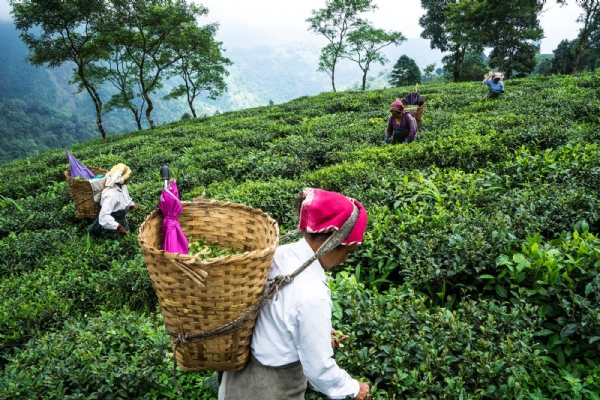Darjeeling's Tea Industry Crisis: Growers seek Centre for action ahead of elections
Mitruka highlighted the stiff competition Darjeeling tea faces from its Nepalese counterpart, underscoring the urgency of government intervention
Total Views |
Kolkata, Apr 6: Amidst the lush hills of Darjeeling in North Bengal, the tea industry, long hailed as an economic stronghold, finds itself grappling with adversity. Tea growers, dismayed by what they perceive as insufficient administrative support, are calling for urgent attention from the Central government to address their plight, particularly in light of the upcoming polls.

Expressing their concerns, tea planters lamented the apparent neglect of the industry's revival efforts by the government. While acknowledging some measures such as crop insurance, tea promotion, and financial aid aimed at small tea growers, they emphasize a lack of cohesive focus for the industry as a whole. Satish Mitruka, a tea garden owner and producer from Siliguri, voiced the industry's grievances, stating, "The tea industry is going through a rough patch, and it demands our immediate attention. Despite our appeals to the government, concerted efforts are needed to rejuvenate the sector."
Also read: Political clash looms over Baruni Mela of Matuas: TMC & BJP lock horns ahead of religious fair
According to reports, Mitruka highlighted the stiff competition Darjeeling tea faces from its Nepalese counterpart, underscoring the urgency of government intervention. "The Darjeeling tea industry is on life support; without swift action, its demise is imminent," he warned.
The significance of the tea industry cannot be overstated, with North Bengal contributing a substantial 250 million kg of tea to India's annual production of 1400 million kg. Over half a million workers are directly or indirectly dependent on this sector for their livelihood.
The urgency of the situation is further underscored by the looming Lok Sabha elections, set to unfold in seven phases starting April 19 across 42 Parliamentary Constituencies in West Bengal. In the 2019 elections, the ruling Trinamool Congress (TMC) secured 22 seats, closely followed by the Bharatiya Janata Party (BJP) with 18 seats, while the Congress managed just two.
However, historical electoral data reveals shifting tides, as seen in the 2014 elections where the TMC dominated with 34 seats, leaving the BJP with only two. The Congress secured four seats, underscoring the volatile political landscape of the region.
As the election fervor intensifies, the tea industry's plight stands as a pressing concern, urging policymakers to heed the calls for revitalization before it's too late.
--

